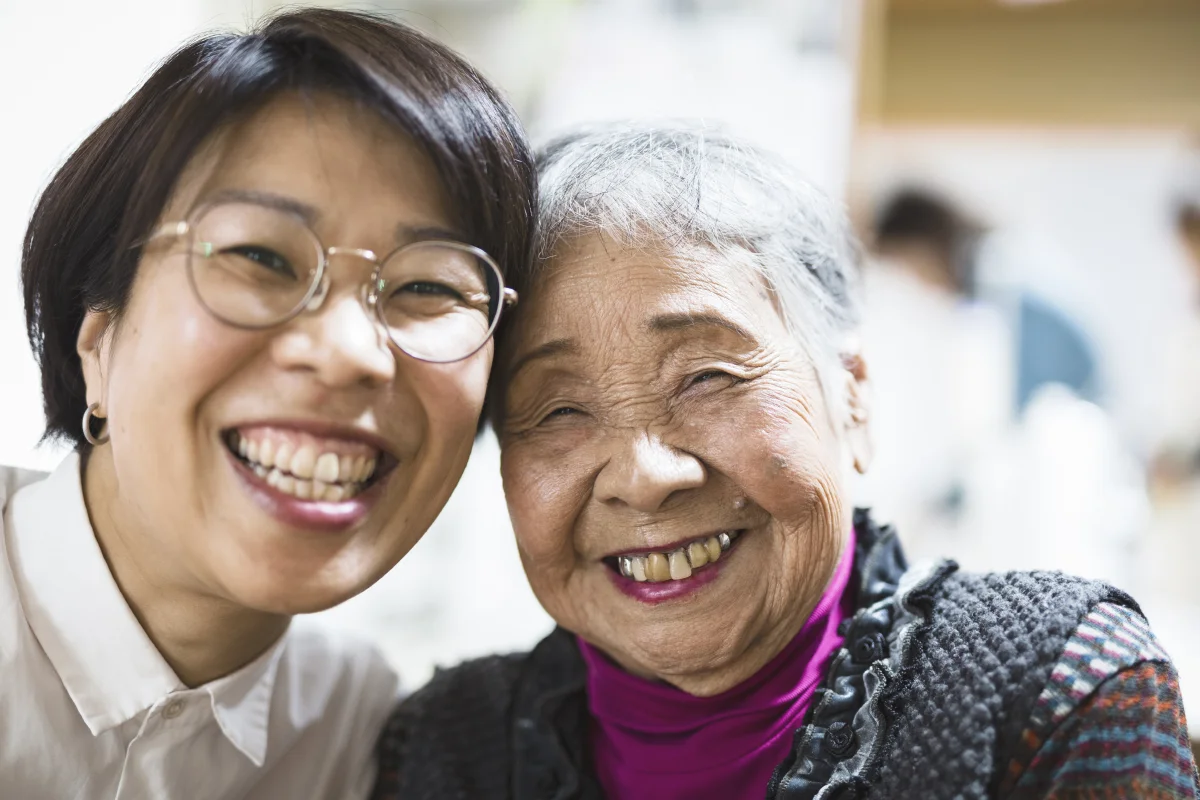
Communicating with Someone with Alzheimer’s: Expert Tips
Conversing with loved ones facing Alzheimer’s disease can be a challenge. However, maintaining a strong connection and providing care is vital. Alzheimer’s affects memory and thinking, so we as caregivers, friends, and family, must adapt how we communicate.
Below are valuable insights on communicating with your loved one with dementia or Alzheimer’s, gathered from Dot Donaldson, RN, Clinical Educator at Jaybird Senior Living:
- Keep It Simple
When talking, use clear and short sentences. Avoid long statements and too many questions. For example, instead of saying, “Let’s take a walk in the park and have lunch,” first say, “Let’s go for a walk.” As you start walking, “Let’s go to the park.” Once you get to the park, select a picnic table and state, “Let’s have lunch.”
Dot’s advice: “Let them do things they can, like buttoning a shirt or making a bed. These are tasks they are familiar with.”
- Use Body Language
Maintaining eye contact and using gestures help. Even if you are multitasking, it can be helpful to stop and look at your loved one when you talk. This reaffirms you are actively engaged in the conversation and ensures they will be too. Smiling and gentle touches can be reassuring and express comforting emotions.
- Be Patient
People with Alzheimer’s may take more time to think and respond. Be patient and let them talk, even if it takes longer.
Dot’s insight: “Let them choose daily activities, like breakfast times or fun things to do. Keeping their interests in mind is important.”
- Minimize Distractions
Talk in a quiet, well-lit place without distractions.
- Offer Choices
Give them simple choices to feel in control. Instead of asking, “What do you want to eat?” say, “Soup or a sandwich?” Choices make decisions easier.
Dot’s advice: “As Alzheimer’s progresses, keep choices simple. Ask questions like “Egg or pancake?” or “Walk or relax?” Too many options can be overwhelming.”
- Active Listening
Pay attention to what they say and how they say it. This could indicate sensitive emotions to address, but also shows you understand and care.
- Use Memory Aids
Use pictures, notes, or memory books with familiar things, places, and people to help them remember.
- Stick to a Routine
Having a regular schedule makes your loved one feel safe. Keep activities and communication consistent.
Dot’s insight: “If your loved one is in a memory care community or you are considering one for them, work with the staff to understand their strengths, weaknesses, interests, and hobbies.
Together, you will create a plan tailored to their needs.”
- Seek Support
You are not alone in this journey. Jaybird Senior Living communities partner with community organizations to offer caregiver and family support groups, educational opportunities, and interactive workshops on how to care for a loved one with Alzheimer’s.
Dot’s advice: “Families know and love their loved ones with dementia best, and should feel empowered to advocate for their loved one and work in collaboration with healthcare professionals.”
Remember, each individual is unique. Adjust your communication to suit your loved one’s needs. Alzheimer’s may affect memory, but maintaining a connection remains essential.
If you are considering Memory Care senior living communities, explore Jaybird Senior Living’s options, which prioritize these essential aspects of care and support.

